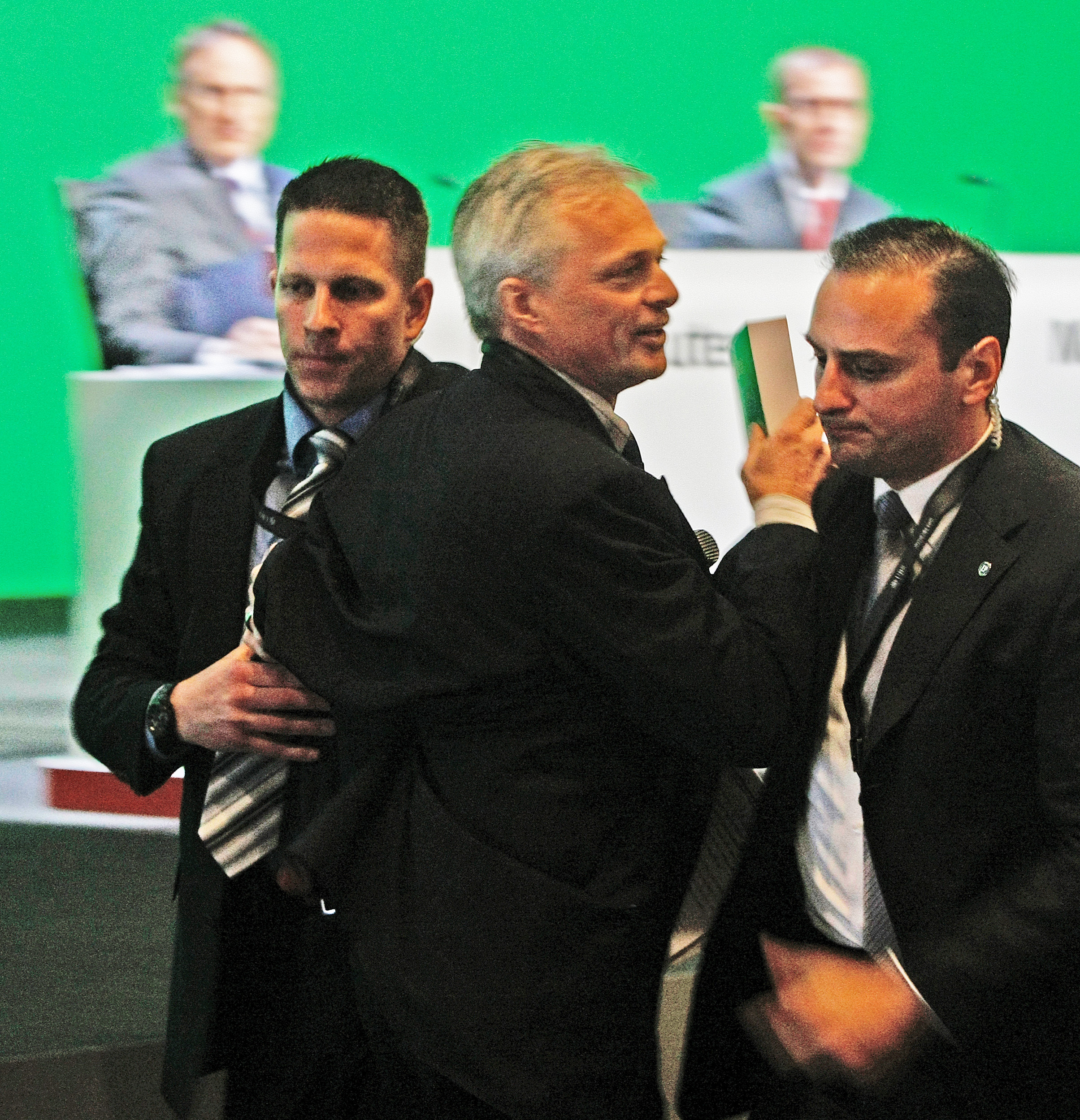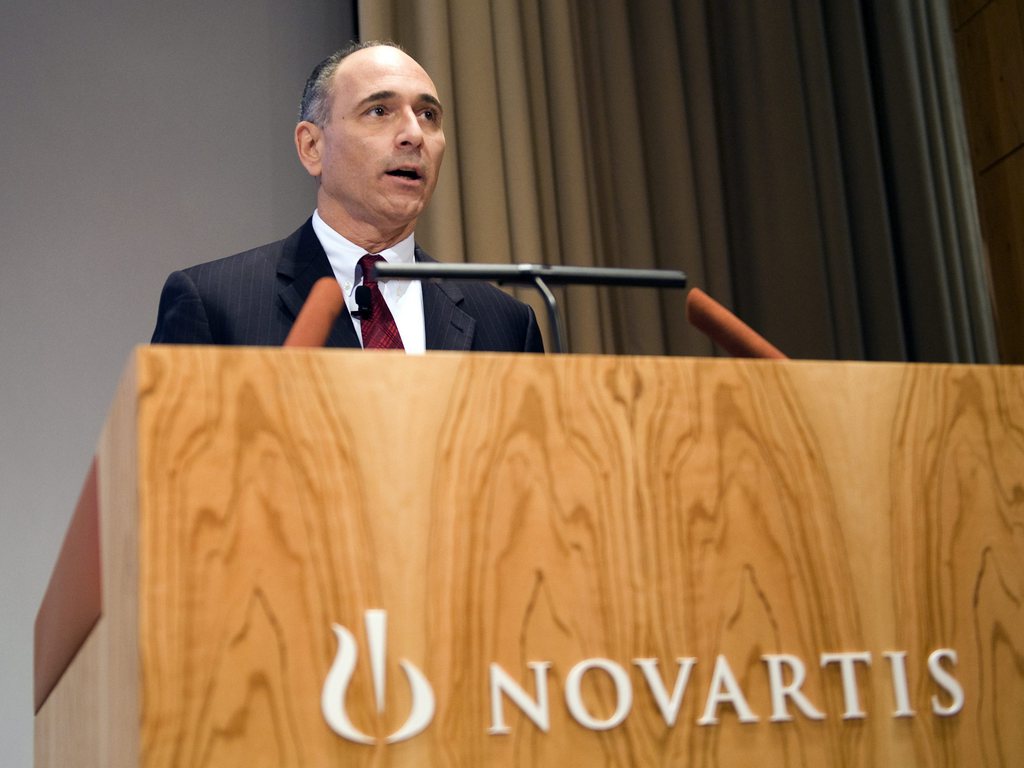‘Fat cat’ pay sees evolution, not revolution

A new era of pay restraint for Swiss bosses has got underway with a swirl of sparklers rather than a full scale firework display. Even when the new bonus-curbing rules come into full effect by 2016, few people believe the ‘cats’ will get very much leaner.
“I do not expect to see a huge impact on corporate pay strategies in Switzerland. At best it will rein in the outliers of excessive executive compensation, but it will have relatively little impact on the average company,” Florian Wettstein, professor of business ethics at the University of St Gallen, told swissinfo.ch.
But it would be wrong to say that the Minder initiative, that was voted in last year, will have no impact on Swiss corporate behaviour. Firms are now making more of an effort to communicate their compensation policies in a more transparent manner.
Companies are busying themselves in this current annual general meeting season with changing their statutes to allow shareholders to vote directors in on an annual basis and – as of next year – have a binding say on compensation for the executive and board.
“We are seeing some small changes but the real substance will become more apparent next year,” Roby Tschopp, chief executive of the small shareholders group Actares, told swissinfo.ch. “The initial signals are mostly encouraging but the message has been a bit mixed.”
On the plus side for Actares, Bank Vontobel and Roche (which is majority owned by its founding member families) have already introduced a binding say on compensation. Pharmaceutical giant Novartis, which was at the centre of the fat cat row last year by proposing (then withdrawing) a CHF72 million ($82 million) pay-off for departing chairman Daniel Vasella, announced significant pay cuts for bosses.
Julius Baer bank reacted to a negative shareholder advisory vote on executive pay last year by revamping their bonus system and cutting out payments related to their integration of Merrill Lynch’s wealth management business.
The initiative against “rip-off” pay, put forward by businessman-turned politician Thomas Minder, was accepted by nearly 68% of voters on March 3, 2013.
The government has issued regulations governing the implementation of the initiative, that came into force on January 1, 2014.
The initiative will be phased in over two years, allowing parliament time to set the initiative into Swiss law at a later date.
This year, all company directors are subject to annual approval by shareholders, even if they had previously been appointed for a longer term. Shareholders will also vote on the composition of a company’s compensation committee as of this year.
Pension funds have until the end of 2014 to set down parameters of how they will vote in the interests of their beneficiaries. Next year, they will be required to vote on Minder issues and inform their beneficiaries of how they voted.
By the end of next year, stock listed companies must give shareholders a binding vote on compensation for executives and the board of directors.
Companies’ statutes will also have to be altered to ban such compensation practices as golden hellos and handshakes.
Wrong model
On the negative side, both UBS and Credit Suisse banks have proposed significant pay increases for top bosses despite having to set aside yet more money to cover potential lawsuits.
Whilst paying executives upwards of CHF10 million might be justified by company results and what others in the industry are earning, many shareholders still find it difficult to stomach such vast figures, argues Wettstein.
“Is it reasonable to pay such amounts? I don’t think so. Neither from an economic nor from an ethical point of view. It is a question of integrity both of the company and the executive to show some restraint in this matter.”
Huge pay-outs will continue to exist as long as financial results remain the driving force behind compensation, he added. “To make a big difference to pay culture you need to move away from a system of creating value for shareholders to one that takes other stakeholders into account, such as lower paid employees and other parties affected by the business.”
Another obstacle to the Minder initiative making significant headway against excessive pay is that most shares of the largest company are held abroad, said Tschopp.
“Foreign shareholders are not tuned into the same frequency as domestic shareholders on the issue of executive pay. Because of this, I would not expect to see anything spectacular happening in the realm of executive compensation,” he told swissinfo.ch.
The New York-based Reputation Institute, measured the public perception of Switzerland’s 20 of the largest firms, finding that watchmaker Swatch has the best image in 2014.
Swiss-based oil drilling multinational Transocean came bottom of the list, still reeling from the Deepwater Horizon oil spill in the Gulf of Mexico in 2010.
UBS bank and Novartis were also based in the bottom quartile, partly as a result of negative publicity over pay.
Roche, biotech firm Actelion, Julius Baer and Credit Suisse were also classified as having a weak or vulnerable reputation score.
A number of factors, such as litigation issues, quality of products and environmental performance, determine perception of companies, but big pay and bonuses can affect opinion, according to Reputation Institute director Carsten Wegmann.
“The pharmaceutical and banking sectors are particularly affected by perception on pay,” he told swissinfo.ch. “They need to have a more open dialogue with society if they want people trust them more.”
Jail threat
Instead, it appears that some Swiss small and medium sized companies are footing the bill for the new regulations. Five smaller firms have delisted from the Bern stock exchange because of the Minder initiative, and another may soon join them.
“It was intended to have a greater effect on larger companies, but we are observing that it is the smaller firms that are feeling the pinch,” Bern stock exchange chief executive Luka Schenk told swissinfo.ch.
“For some small companies there is simply no cost or governance benefit in adapting their statutes and introducing electronic voting. On top of this is the threat of criminal liability. Directors of SMEs, that do not have access to permanent legal counsel like the large firms, do not relish the thought of spending three years in jail if they do anything wrong.”
Some larger companies have also expressed reservations about the increase in Swiss regulatory hurdles. United States oil giant Weatherford cited the Minder initiative as one of the reasons it has chosen to move its incorporation from Switzerland to Ireland.
Ironically, Nestlé chairman Peter Brabeck complained in an Bloomberg interview that short-sighted pay policies could become the norm if shareholders reacted in a knee-jerk fashion, thinking only of that year’s dividend payments.
“This transfer of power from the board of directors to shareholders and the annual elections will tend to favour a short-term perspective,” he said earlier this month. “We should not forget that Nestlé’s success story, which stretches back almost 150 years, is based on solid, long- term commitment.”

In compliance with the JTI standards
More: SWI swissinfo.ch certified by the Journalism Trust Initiative



You can find an overview of ongoing debates with our journalists here. Please join us!
If you want to start a conversation about a topic raised in this article or want to report factual errors, email us at english@swissinfo.ch.